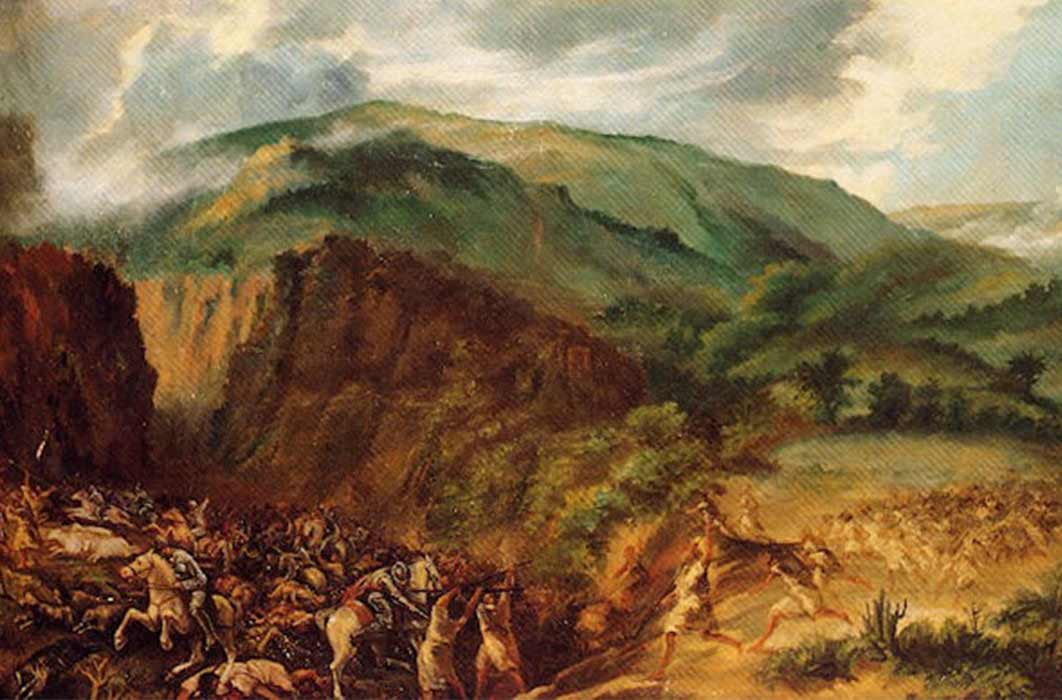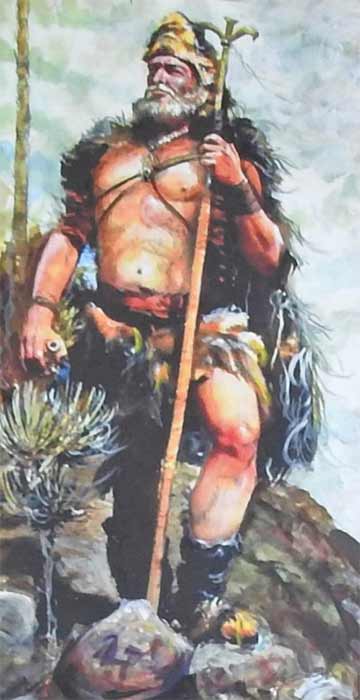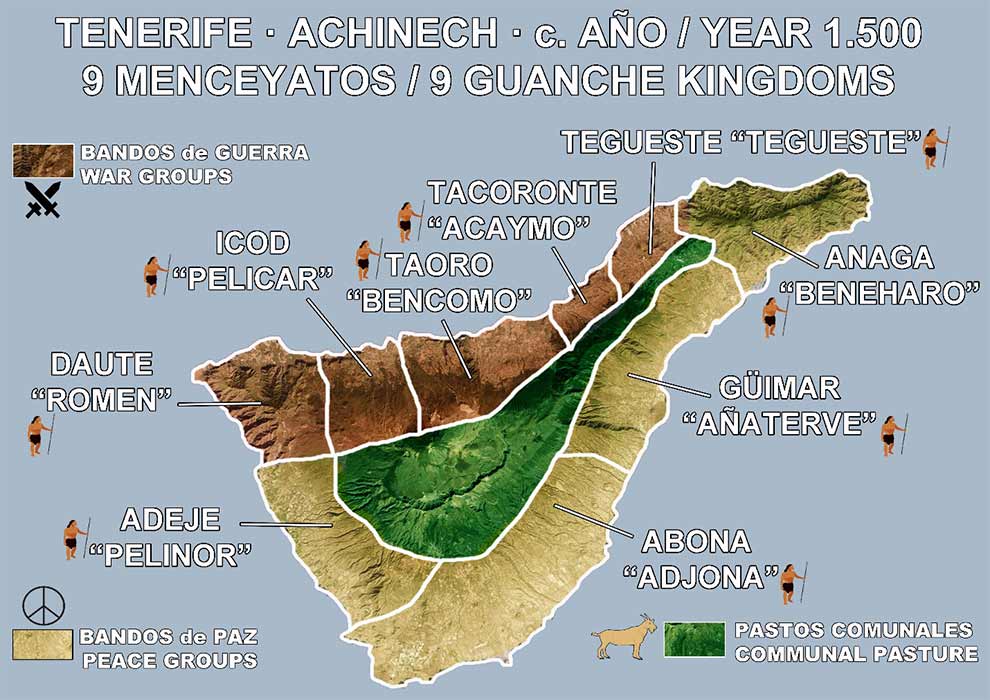
1494 The Battle Of Acentejo: A Gaunches Victory At Tenerife Over The Castilians
A battle at the end of May 1494, on the north slope of the island of Tenerife, between the Castilian troops of the belligerent Catholic Monarchs of Fernando II of Aragon and Isabel I of Castile and a thousand Guanches warriors was set to paralyze, in a most surprising way, the brutal conquest of the island by the Crown of Castile.

Bencomo, the charismatic and cunning aboriginal leader that was responsible for the great Guanches victory at la Matanza de Acentejo, (© José Carlos Gracia, provided by Gustavo Sánchez Romero)
The Mencey (king or leader) Imobac Bencomo, a 70-year-old veteran in command of the Guanches warriors, together with his brother Chimenchia (also called Tinguaro by the historian / poet Viana), silently watched the enemy, who although well-armed and armored, advanced with trepidation along the bed of a steep ravine, a rocky labyrinth of dense vegetation. The south of the island had practically been completely conquered by the Spaniards, mainly due to the smooth sweet-talking of the monks whose new religion transformed and confused the aboriginal society, to accept a “more civilized and Christian” way of life. The Northern Guanches knew there was a lot at stake. The atmosphere seemed temporarily frozen, not a leaf moved, no insect buzzed and no lizard scrambled for cover. With his heavy goat skin guapilete covering his loins and wearing the shaggy helmet of a mountain commander, the shrewd eyes of Bencomo scrutinized the rugged natural terrain, soon to be turned into a macabre war scene, recognizing every cliff, every cave, every ledge, every ravine. He knew a defeat would inexorably lead the Spaniards to the heart of the island, the very tough Guanches nucleus of total resistance: the Menceyato (Kingdom) de Taoro.

Tenerife divided into the Peace Groups (beige) and Guances Kingdoms (brown) during the Castilian conquest (Image: Courtesy of Gustavo Sánchez Romero)
Historical Overview
Following the conquest of the island of La Palma in 1493, all the islands of the Canarian archipelago came under the control of the Crown of Castile with the exception of Tenerife, which was still in the possession of the Guanches aborigines. In December 1493 Captain Alonso Fernández de Lugo, who was form Cadiz (southern Spain) and had led the conquest of La Palma, conferred with the Catholic Monarchs of Spain regarding the conquest of Tenerife. To finance the expedition, Lugo sold several family properties and partnered with some Genoese merchants. He enlisted troops from Seville and Gran Canaria, finally landing his army of conquerors on May 1, 1494 on the coast of Añazo (modern capital Santa Cruz de Tenerife).

Wedding portrait of King Ferdinand of Aragon and Queen Isabella of Castile (Public Domain)
The Spanish forces built a fort at the site of the present city of Santa Cruz. They were joined by the Guanches kings of the so-called ‘peace group’ - Abona, Adeje, Anaga and Güímar, who had signed a peace treaty with the governor of Gran Canaria, Pedro de Vera, several years before. Lugo sent emissaries to the kingdom of Taoro, the main and most powerful of the island, to meet in the vicinity of where the modern city of San Cristóbal de La Laguna is located. According to the Frair Alonso de Espinosa, the conquering captain offered Mencey (king) Bencomo of the Guanches, friendship in exchange for his submission to the Crown of Castile and his conversion to Christianity. Bencomo refused, and both parties retreated to their respective territories to prepare for battle.





